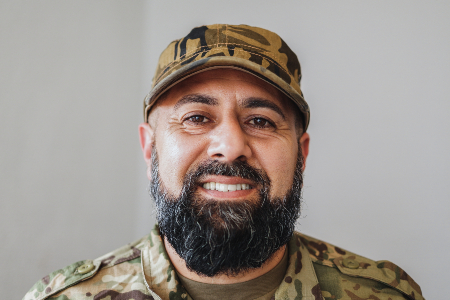Personality Disorders Treatment for Veterans
Personality disorders are common among veterans of combat. Although there are limited studies regarding this, many veterans with PTSD suffer co-occurring symptoms of other mental health conditions.
Solara Mental Health in San Diego, CA, has contracted with VA insurance, which allows us to provide affordable veteran mental health services. Solara offers personality disorder treatment services to veterans in need. Solara can provide transportation, housing, and other accommodations with authorization.
About Personality Disorders
Personality refers to a person’s traits on how they think, behave and feel. It makes a person unique and is usually influenced by biological and environmental factors. On the other hand, personality disorders refer to a person’s disordered feelings, behavior, and thinking. These types of disorders may cause distress to how a person functions over time.
Types of Personality Disorders
According to the Diagnostic and Statistical Manual of Mental Disorders, Fifth Edition (DSM-V) there are ten personality disorders that can be grouped into three categories, depending on symptoms. Personality disorders are often associated with difficulties with self-identity and interpersonal functioning. Failing to develop or maintain close relationships with others is common with personality disorders.
Cluster A Disorders
Cluster A personality disorders are often characterized by unusual thinking and behaviors. This group of personality disorders often can lead to social difficulties and problems.
Cluster A personality disorders include:
- Paranoid personality disorder – mistrust and suspicion of others leading to the tendency to hold grudges and hostile reactions to perceived insults
- Schizoid personality disorder – disinterest in others socially, romantically, and little interest or pleasure in most activities
- Schizotypal personality disorder – eccentric ideas, behaviors, and odd perceptual experiences
Cluster B disorders
Cluster B personality disorders are often characterized by consistent unstable emotions and dramatic behaviors. Cluster B disorders tend to have unpredictable thinking and behaviors.
Cluster B personality disorders include:
- Antisocial personality disorder (ASPD) – social irresponsibility, disregard for others, deceitfulness, and manipulation of others for personal gain
- Borderline personality disorder (BPD) – impulsive and risky behavior, inner emptiness, unstable relationships, and emotional dysregulation
- Histrionic personality disorder – attention-seeking, excessive emotionality, and easily influenced by others
- Narcissistic personality disorder – self-grandiosity, need for admiration, arrogance, and lack of empathy
Cluster C Disorders
Cluster C personality disorders are often characterized by experiences with severe anxiety and fear. Fearful thinking and behaviors can begin to affect daily functioning.
Cluster C personality disorders include:
- Avoidant personality disorder – avoidance of interpersonal contact due to rejection and criticism sensitivity
- Dependent personality disorder – submissiveness, clingy behaviors, lack of self-confidence, and a need to be taken care of
- Obsessive-compulsive personality disorder (OCPD) – preoccupation with rules and details, perfectionism, rigidity, and obstinacy
What are the Causes?
Mental health disorders, including personality disorders, can be caused by multiple factors. Although no one cause has been linked to personality disorders, certain experiences can lead to an increased risk of developing these disorders.
Genetics
Some genetic factors can be associated with certain disorders. Having a family member who struggles with personality disorders can cause an increased risk of developing a personality disorder. In addition, people with a background of fear, aggression, and anxiety can experience these disorders.
Childhood Trauma
Researchers believe there is a strong connection between a traumatic childhood and personality disorders. Victims of sexual traumatic childhood may experience a borderline personality disorder.
Verbal abuse
There are higher chances of children verbally abused in their childhood experiencing borderline, paranoid, obsessive-compulsive, and narcissistic personality disorders.
Risk Factors Among Veterans
There is no single known cause of personality disorders among veterans. However, certain factors are likely to trigger these types of disorders in veterans
Risk factors for personality disorders in veterans can include:
- Chaos
- Abnormal brain chemistry
- History of mental illness in the family
- Trauma
Veterans have an increased risk of developing a personality disorder after combat due to experiences at war that are traumatic. The increased stress of living a military life can increase the risk of personality disorders developing.
Treating Personality Disorders in Veterans
Different clusters and types of personality disorders may require different kinds of treatment. A customized treatment plan can be developed for veterans to help best fit individual needs. Treatment is also dependent on how severe the disorder is, and the current situations in a veteran’s life.
Psychotherapy
Psychotherapy, also known as talk therapy, is an approach that is the most commonly used method of treating personality disorders. However, psychiatric treatment is not enough to treat these disorders. Veterans can take a holistic approach to help ensure that their medical and social needs are also met.
Psychotherapy can help veterans discuss their thoughts, feelings, moods, and behaviors. Veterans can also learn about their condition, manage it, and cope with stress and other difficult situations.
There are different types of talk therapy treatments that are usually provided in individual, group, or family sessions. Veterans can also get training in critical social skills.
Social skills training helps veterans use the knowledge gained in therapy to adopt healthy ways of managing their symptoms and behaviors. By using this approach they build relationships and improve social interactions with others.
Medications
The Food and Drug Administration (FDA) has not approved any specific medications to treat personality disorders. However, certain medications can be used to alleviate some personality disorder symptoms.
They include:
- Antidepressants. These types of drugs may be used to improve some personality disorder symptoms like depression, anger, feeling irritable, or impulse control.
- Mood stabilizers. Mood stabilizers can help impulse control, mood swings, feeling irritable, and aggression.
- Antipsychotic medications. These drugs are also known as neuroleptics and can help people with severe symptoms manage their anxiety and anger issues.
- Anti-anxiety medications. Doctors can use them to treat anxiety symptoms, agitation, or insomnia. However, these drugs should be cautiously used because they can sometimes increase impulsive behavior in certain types of these disorders.
Solara Mental Health provides medication for personality disorders on an as-needed basis. Depending on the diagnosis and severity of the disorder, the clinical team can determine whether medication will be beneficial.
Transportation, Housing, & Accommodations for Vets
Solara Mental Health is able to provide transportation to and from its facilities in San Diego, CA for most of the TriWest covered states.
Along with transportation, Solara can provide long-term housing at its beautiful Pacific Beach, San Diego residences that are close to the treatment center. These housing accommodations can be provided for both inpatient and outpatient treatment that may follow inpatient treatment.
Veterans may remain in housing for as many weeks or months as the VA insurance authorizes. We often find that the VA authorizes a considerable length of stay, allowing us the ability to provide quality treatment for the amount of time needed to heal and recover.
View our facilities in Pacific Beach to get a preview of what you might expect when choosing Solara Mental Health as your care provider.
Veteran Personality Disorder Treatment in San Diego
Solara Mental Health in San Diego focuses on giving veterans a safe environment to access quality treatment. Our team of mental health professionals has experience treating veterans with personality disorders. We are well equipped to accommodate every veteran’s needs while offering the resources needed to meet these needs.
Solara Mental Health is VA contracted as a community care provider in order to help veterans with their personality disorders at an affordable cost. If authorization occurs, we are able to provide housing, transportation, and accommodations to veterans in our care.
If you or a veteran you care about is struggling with a personality disorder, reach out to Solara Mental Health for help. Our team of professionals can answer any questions you may have and give you a better understanding of our program.





